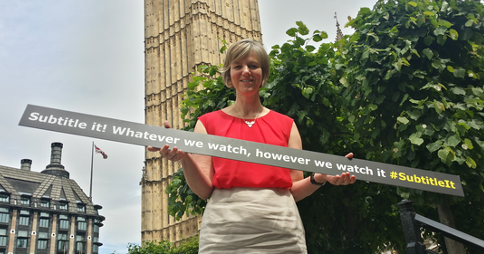Captions
Accessible Live Events call for papers
UK Labour MP supports VOD access campaign
UK regulator releases access requirements for 2016
Government announces review of the ACMA
Accessible trailers help you decide
Captioning helps ASD students
Captions aid literacy in the classroom
UK disability advocates release roadmap for VOD accessibility
ACMA releases caption compliance reports for 2013-2014
Feature Item
Show on home page
The report for free-to-air compliance found that all 51 commercial stations and SBS met their captioning target for the year, which was to caption 95 per cent of programs on their primary channels between 6 am and midnight. The ABC fell one per cent below its target, due to the fact that only one hour of its music program
Taxonomy:
Top of page










